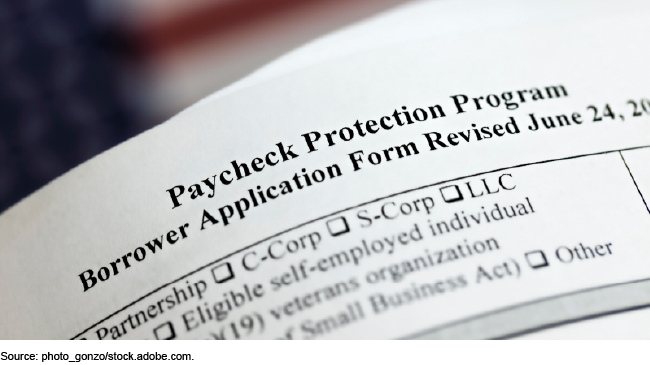Small Business Administration: Progress and Work Remaining to Implement Key Management Improvements
Fast Facts
The Small Business Administration set up programs to help with the COVID-19 pandemic, including the Paycheck Protection Program.
We testified about 23 recommendations we've made to improve this and other SBA programs.
SBA has addressed 10 of our recommendations. For example, we recommended that it conduct a formal fraud risk assessment and develop a strategy to manage risks, and SBA has done so.
However, SBA hasn't fully addressed our other 13 recommendations. For instance, it could better identify and use data to help verify applicant information and prevent fraud.

Highlights
What GAO Found
In response to the economic downturn caused by the COVID-19 pandemic, the Small Business Administration (SBA) quickly set up the Paycheck Protection Program (PPP), COVID-19 Economic Injury Disaster Loan (COVID-19 EIDL) program, and other relief programs. SBA also administers a Disaster Loan Program that helps small businesses and others recover after natural disasters.
Since February 2020, GAO has made recommendations to improve SBA programs, including 23 key recommendations. SBA fully addressed 10 of the key recommendations, including the following:
- PPP oversight. Because SBA initially had limited safeguards, GAO recommended in June 2020 that it implement plans to respond to PPP risks, help ensure program integrity, and address potential fraud. In response, SBA developed a loan review process in December 2020. As of the end of fiscal year 2023, GAO estimated that SBA's use of additional safeguards in PPP and other COVID programs had resulted in more than $12 billion in savings.
- Assessment of fraud risks. SBA did not conduct a formal fraud risk assessment before implementing PPP or COVID-19 EIDL. In March 2021, GAO recommended that SBA conduct a formal assessment and develop a strategy to manage fraud risks for each program. SBA completed these steps in August 2023.
SBA has not yet fully addressed 13 of these recommendations, including the following:
- Enhancing data analytics. In May 2023, GAO recommended that SBA identify data that could help verify applicant information and detect potential fraud. GAO also recommended that SBA develop cross-program data analytics that would better identify applicants who tried to defraud multiple programs. According to SBA, to begin addressing these recommendations, it has procured third-party services to help validate customer identity and has begun a comprehensive review of its data analytics.
- Addressing access barriers. GAO found in December 2021 that SBA's Disaster Loan Program and five other federal programs did not have key information for examining barriers to access and disparate recovery outcomes among various socioeconomic and demographic groups. GAO recommended SBA work with two other agencies to implement an interagency plan to address these equity issues. SBA officials said the agencies are in the process of developing such a plan.
In addition, SBA's independent financial statement auditor has issued four consecutive disclaimers of opinion on SBA's consolidated financial statements since fiscal year 2020. SBA was unable to support a significant number of transactions and account balances related to PPP and COVID-19 EIDL. The auditor identified six material weaknesses in internal controls over financial accounting, including in controls for PPP and COVID-19 EIDL. GAO supports the auditor's recommendations to address these weaknesses and encourages SBA to develop and implement a corrective action plan to address them.
Why GAO Did This Study
Since spring 2020, SBA has administered four pandemic relief programs, including PPP and COVID-19 EIDL. PPP provides potentially forgivable loans to small businesses. COVID-19 EIDL provides low-interest loans of up to $2 million for operating and other expenses, as well as advances (grants).
Concerns about SBA's implementation of PPP and COVID-19 EIDL led GAO to include emergency loans for small businesses on its High-Risk List in March 2021. SBA made or guaranteed more than $1 trillion in loans and grants and assisted more than 10 million small businesses through its relief programs. In addition, SBA has continued to make loans under its Disaster Loan Program.
Among other things, this testimony focuses on the status of selected recommendations GAO has made to SBA on its pandemic relief and disaster loan programs, and on issues related to SBA's financial accounting. This testimony is based largely on the reports GAO issued since February 2020 containing the 23 key recommendations. For those reports, GAO reviewed SBA documentation, analyzed program data, and interviewed officials from SBA and other federal agencies. GAO also reviewed the opinions of SBA's independent financial statement auditor.
For more information, contact Courtney LaFountain at (202) 512-8678 or lafountainc@gao.gov.
